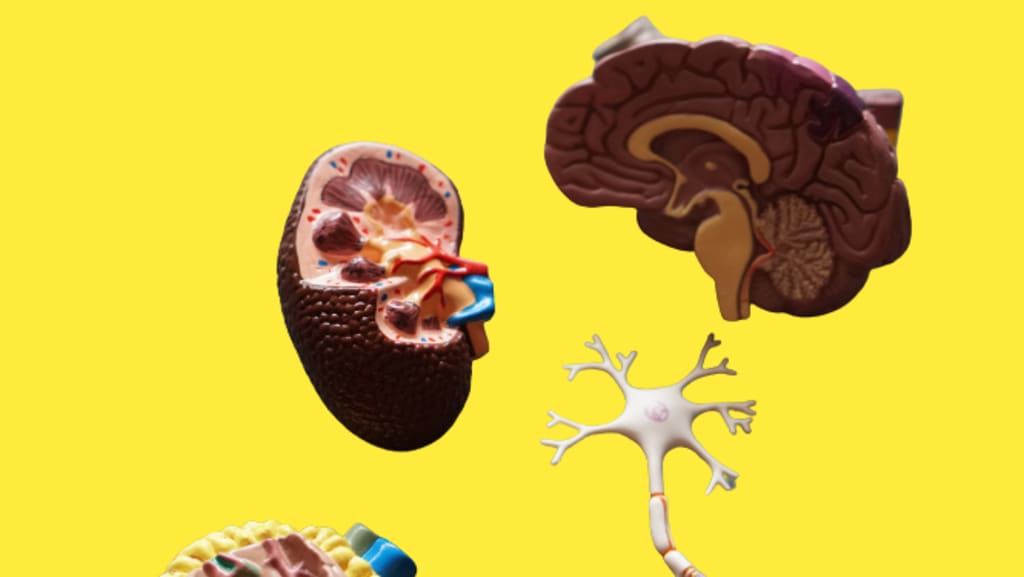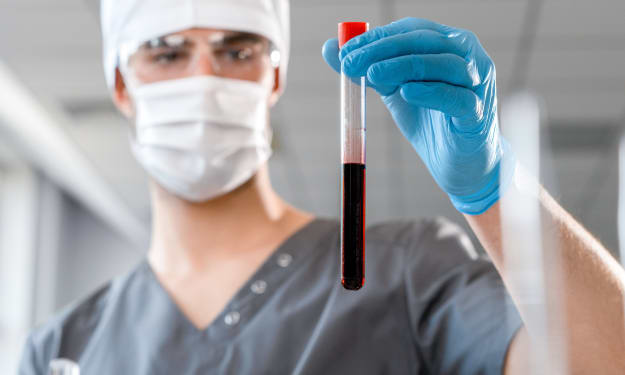The Silent Threat: Habits That Seriously Damage Your Kidneys
How are kidneys damaged?

The Silent Threat: Habits That Seriously Damage Your Kidneys
Introduction
The kidneys are essential organs that perform a variety of crucial functions in the body. They filter waste and toxins from the blood, produce urine, regulate blood pressure, and maintain the balance of electrolytes, such as sodium, potassium, and calcium. Maintaining healthy kidneys is crucial for overall well-being and longevity.
What are kidneys and their importance?
The kidneys are two bean-shaped organs located on either side of your spine, just below the rib cage. Each kidney is approximately the size of a fist. Their primary function is to filter waste products, excess water, and toxins from the blood to produce urine. The urine then flows through the ureters to the bladder, where it is stored until excretion.
Aside from filtration, kidneys are responsible for regulating blood pressure, producing red blood cells, activating vitamin D for bone health, and balancing electrolyte levels in the body. The kidneys also play a crucial role in maintaining the body's pH balance and removing drugs and toxins.
Common habits that damage kidneys
1. Excessive salt intake
A diet high in salt can put excessive strain on the kidneys. Consuming too much salt leads to water retention, which increases blood pressure and forces the kidneys to work harder. Over time, this can lead to kidney damage and impaired function. To protect your kidneys, it's important to limit your salt intake and opt for healthier alternatives for flavoring your meals.
2. High sugar consumption
Excessive consumption of sugar, especially in the form of sugary beverages and processed foods, can have a detrimental effect on your kidneys. High sugar levels in the blood can cause damage to the tiny blood vessels in the kidneys, leading to kidney disease. It is essential to reduce your sugar intake and opt for natural sweeteners or healthier alternatives like fruits.
3. Chronic dehydration
Inadequate hydration can significantly impact kidney function. When you don't drink enough water, the kidneys have to work harder to filter waste and toxins from the blood. This strain can gradually lead to kidney damage and the formation of kidney stones. Make sure to stay adequately hydrated by drinking water throughout the day and consuming hydrating foods like fruits and vegetables.
4. Smoking
Smoking is not only harmful to your lungs and heart but also to your kidneys. Smoking reduces blood flow to the kidneys, causing damage to blood vessels and impairing their ability to function properly. Quitting smoking is crucial for protecting your kidneys and overall health.
5. Excessive alcohol consumption
Excessive alcohol consumption can have a severe impact on kidney health. Alcohol is a toxin that puts stress on the kidneys and interferes with their ability to filter waste and fluids effectively. Prolonged alcohol abuse can lead to chronic kidney disease or even kidney failure. It is important to drink alcohol in moderation or avoid it altogether to safeguard your kidneys.
6. Overuse of painkillers
Frequent and prolonged use of certain pain medications, such as non-steroidal anti-inflammatory drugs (NSAIDs) like ibuprofen, can harm the kidneys. These medications can cause kidney damage, especially when taken in high doses or for a long duration. It is advisable to use painkillers judiciously and consult your healthcare provider for alternative options if you require long-term pain management.
7. Lack of exercise
Leading a sedentary lifestyle without regular exercise can contribute to kidney damage. Physical inactivity can lead to obesity, high blood pressure, and diabetes, all of which are risk factors for kidney disease. Engaging in regular physical activity, such as walking, jogging, or swimming, helps maintain a healthy weight, control blood pressure, and reduce the risk of kidney damage.
Effects of damaged kidneys
While maintaining a balanced diet is essential for overall kidney health, certain foods have been associated with promoting kidney function. Here are some examples of foods that are beneficial for kidney health:
• Leafy greens: Spinach, kale, and other leafy greens are packed with nutrients like vitamins A and C, as well as antioxidants. They are also low in potassium, making them a healthy choice for individuals with kidney disease.
• Berries: Blueberries, strawberries, and raspberries are rich in antioxidants and fiber. They can help reduce inflammation and protect against oxidative stress, which is beneficial for kidney health.
• Fish rich in omega-3 fatty acids: Fatty fish like salmon, mackerel, and sardines are excellent sources of omega-3 fatty acids. These fatty acids have anti-inflammatory properties and may help lower the risk of kidney disease.
• Olive oil: Olive oil is a heart-healthy fat that contains antioxidants and anti-inflammatory compounds. It can be used as a healthier alternative to other cooking oils and can benefit kidney health.
• Low-fat dairy products: Low-fat dairy products like skim milk, yogurt, and cheese are excellent sources of high-quality protein. They provide essential nutrients like calcium and vitamin D, which are important for maintaining bone health.
While these foods are generally considered beneficial for kidney health, it's important to note that individual dietary needs may vary. It's recommended to consult with a healthcare professional or a registered dietitian for personalized dietary recommendations based on your specific health condition and requirements.
Now that you have a comprehensive understanding of the habits that seriously damage your kidneys and the preventive measures you can take to protect these vital organs, it's time to prioritize your kidney health. By making informed choices and adopting a healthy lifestyle, you can promote optimal kidney function and overall well-being. Remember, your kidneys play a crucial role in maintaining your health, so take care of them for a healthier future.
In conclusion, your kidneys are remarkable organs that perform essential functions to maintain your overall health. Unfortunately, certain habits can seriously damage your kidneys and compromise their vital functions. Excessive salt intake, high sugar consumption, chronic dehydration, smoking, excessive alcohol consumption, overuse of painkillers, and lack of exercise are all habits that can harm your kidneys.
The effects of kidney damage can be far-reaching, impacting your kidney function, blood pressure, fluid balance, mineral levels, anemia, bone health, and even increasing the risk of heart disease. However, there are preventive measures you can take to protect your kidneys and promote kidney health.
Maintaining a balanced diet, staying hydrated, limiting salt and sugar intake, avoiding smoking and excessive alcohol, using painkillers judiciously, and engaging in regular exercise are all important steps to safeguard your kidneys. By adopting these preventive measures, you can reduce the risk of kidney damage and associated health issues.
Remember, kidney damage can have serious consequences, so it's crucial to prioritize kidney health in your lifestyle choices. Consult with healthcare professionals for personalized advice, follow a healthy and balanced diet, and make conscious efforts to stay hydrated and avoid habits that harm your kidneys. By doing so, you can protect these vital organs and enjoy optimal kidney function for a healthier and happier life.
While kidney damage can sometimes be reversed, it largely depends on the underlying cause and the extent of the damage. Adequate hydration is important for kidney health, and a general guideline is to drink at least 8 glasses (64 ounces) of water per day, adjusting for individual needs. Moderate coffee consumption is generally considered safe for most individuals, but excessive caffeine intake can indirectly affect kidney function. It's best to consume coffee in moderation and stay hydrated to maintain kidney health.
When it comes to kidney stones, prevention is key. Drinking an adequate amount of water, usually around 8 glasses (64 ounces) per day, helps dilute urine and reduce the risk of stone formation. Additionally, reducing sodium intake, eating a balanced diet, and avoiding excessive intake of oxalate-rich foods (such as spinach, rhubarb, and chocolate) can also help prevent kidney stones.
It's important to note that while these FAQs provide general guidance, individual circumstances may vary. It's always advisable to consult with a healthcare professional or a nephrologist (a kidney specialist) for personalized advice based on your specific health condition and needs.
The kidneys play a crucial role in filtering waste products and excess fluids from the blood, maintaining electrolyte balance, and producing hormones that regulate blood pressure. When the kidneys are damaged, they may not function properly, leading to a range of symptoms. Here are some general symptoms of damaged kidneys:
1. Changes in urination: Decreased urine output, frequent urination, urgency to urinate, difficulty urinating, foamy or bubbly urine, blood in the urine (hematuria), or dark-colored urine.
2. Swelling: Edema or swelling in the legs, ankles, feet, face, or hands due to fluid retention. This occurs because the kidneys may fail to remove excess fluid from the body.
3. Fatigue and weakness: Damaged kidneys can lead to anemia, a condition characterized by low red blood cell count, resulting in fatigue, weakness, and decreased energy levels.
4. Fluid and electrolyte imbalances: The kidneys regulate the balance of electrolytes (such as sodium, potassium, and calcium) and fluid in the body. When the kidneys are damaged, imbalances can occur, leading to symptoms like muscle cramps, irregular heartbeat, excessive thirst, and dry mouth.
5. High blood pressure: The kidneys help regulate blood pressure, and when they are damaged, blood pressure may increase. Uncontrolled high blood pressure can further damage the kidneys and other organs.
6. Back pain: Kidney damage can cause pain in the back or sides, typically below the rib cage. This pain can be sharp or dull and may be persistent or intermittent.
7. Nausea and vomiting: Build-up of waste products in the blood can lead to nausea, vomiting, loss of appetite, and a metallic taste in the mouth.
8. Loss of appetite and weight loss: Damaged kidneys can cause a loss of appetite, resulting in unintended weight loss.
It's important to note that these symptoms can vary depending on the underlying cause and severity of kidney damage. If you are experiencing any of these symptoms or have concerns about your kidney health, it is recommended to consult a healthcare professional for proper evaluation and diagnosis.
8. Conclusion
Your kidneys are incredible organs that play a crucial role in maintaining your overall health. By being aware of the habits that can harm your kidneys and taking proactive measures to protect them, you can significantly reduce the risk of kidney damage and promote kidney health.
Remember to adopt a balanced diet that includes foods beneficial for kidney health, stay hydrated by drinking enough water, limit salt and sugar intake, avoid smoking and excessive alcohol consumption, use painkillers responsibly, and engage in regular exercise. These lifestyle choices, combined with regular check-ups and consultations with healthcare professionals, will help you safeguard your kidneys and enjoy optimal kidney function.
Take charge of your kidney health today, because a healthy lifestyle today can lead to a healthier future tomorrow. Your kidneys deserve your attention and care, so make conscious choices to protect these vital organs and preserve your overall well-being.
Remember, this article is intended for informational purposes only and should not be considered a substitute for professional medical advice. If you have any concerns or questions about your kidney health, please consult with a healthcare professional or a nephrologist.
About the Creator
Ghulam Abbas
Skilled content writer with 15 years' experience in humanities and motivation. Illuminating insights in literature, history, philosophy, and culture, connecting readers to human experiences. Expertise in motivational writing.
Enjoyed the story? Support the Creator.
Subscribe for free to receive all their stories in your feed. You could also pledge your support or give them a one-off tip, letting them know you appreciate their work.





Comments
There are no comments for this story
Be the first to respond and start the conversation.